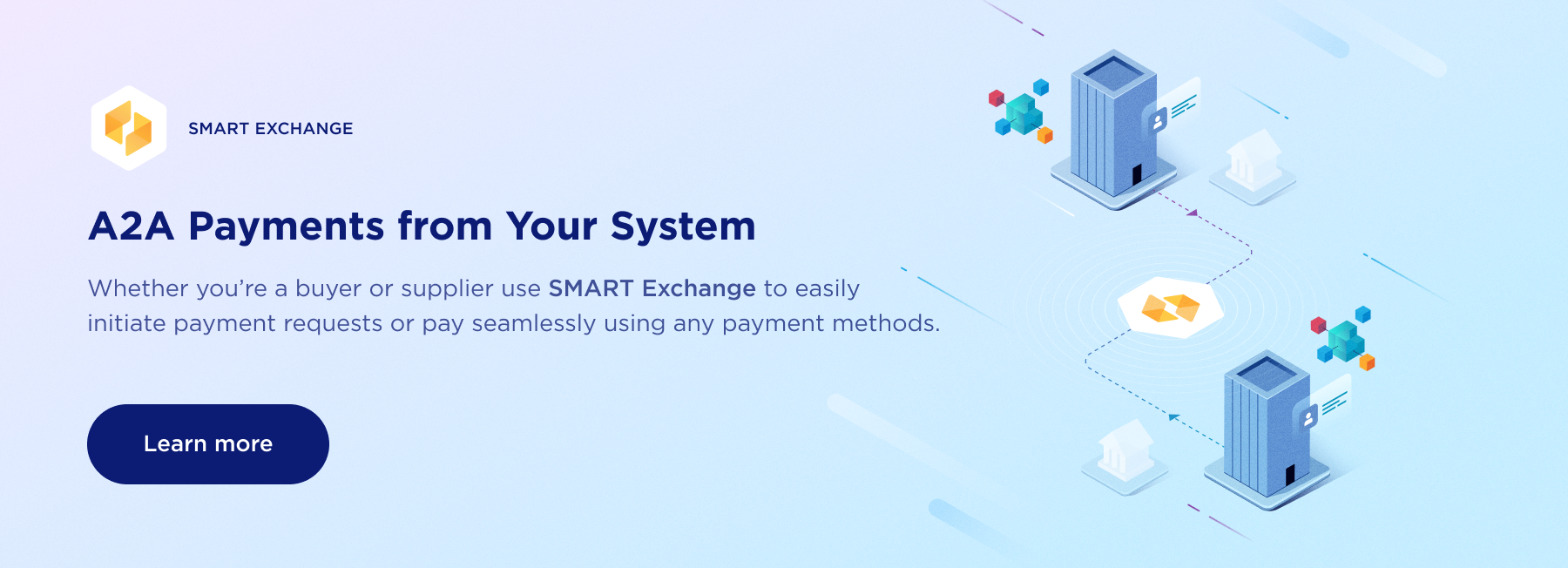The more I look at business-to-business (B2B) commerce, the more I realize that businesses have a lot of work to do in smoothing out the process.
The problem is a simple one: too many silos.
For instance, buyers may have point solutions for purchasing goods and services, processing invoices, executing payments, and reconciling transactions. Meanwhile, a supplier manages the process with solutions for processing orders, processing payments, managing receivables, and applying cash. That's how B2B commerce works today.
Buyers and Suppliers Affected by Siloed Payments
Whether they are on the buy-side or the sell-side, each solution has its own logins and passwords, accounts requirements, file formats, and proprietary integrations.
Complicating matters, transactions are typically processed in batches, which contribute to more inefficiencies and delays.
Worse, payments and data invariably flow through disparate channels. And structured data stored in an ERP or other system of record is often converted into an unstructured or semi-structured format, such as a PDF invoice that is attached to an e-mail.
As a result, data must be captured, managed, and reconciled with payments multiple times as it flows through the B2B commerce lifecycle, all while ensuring security. Even the smallest error in managing data can bring the whole process to a halt.
This siloed approach to B2B commerce is incredibly flawed.
Payments and Data Flows in B2B Commerce
Things are getting worse as more investor backed fintechs burst onto the scene with new point solutions, many of which are heavily dependent on virtual card interchange.
While virtual cards have a place in B2B commerce, they have failed to gain greater than 5 percent acceptance among all B2B payment types.This means these solutions are resulting in new silos in the B2B commerce lifecycle.
A siloed approached to B2B commerce cause big operational and financial challenges.
Instead of payments and data flowing smoothly, suppliers experience inefficient payment processes, poor quality remittance data, late payments, and unapplied cash.

Buyers struggle with inefficiencies in invoice and payment processing, lots of calls and e-mails from suppliers requesting updates and clarifications on payments, and the risk and cost of maintaining supplier bank account information.
Suppliers of all sizes rely on spreadsheets to manage payment terms and manually reconcile invoices.
The Direct Account-to-Account Approach for B2B Payments
It is no wonder that 60 percent of corporate treasurers surveyed for Strategic Treasurer’s 2017-2018 Treasury Perspectives Survey cited manual processes as their top challenge.
It should not be this hard for businesses to make or receive payments.
A new approach to payments is bringing down the payment and data silos that drive the cost and complexity in B2B commerce. These account-to-account solutions systematically connect buyers and sellers to each other through their banks and ERP platforms.
Providing buyers and suppliers with a single connection for making and receiving payments is a game-changer in B2B commerce.
Once buyers and suppliers are connected through common rules and standards, payments and data can be effortlessly exchanged. Invoices can be electronically presented to buyers immediately upon delivery of goods or services.
Buyers can approve digital invoices from a tablet or any other device, from any location, including a loading dock, with no need for paper shuffling or keying. A Real-Time Payment (RTP) or other payment type for delivered goods can be initiated with a few clicks.
Buyers can receive confirmation as soon as the payment is received. And rich remittance data can be instantly uploaded into a supplier’s ERP with settlement and reconciliation occurring in real-time.
Suppliers also can have the piece of mind that a completed RTP transaction is non-irrevocable.
By eliminating the payment and data silos in B2B commerce, transactions can be processed within seconds, rather than days or weeks, and without the inefficiencies, financial challenges, and risks of outdated payment processes. Payments due by 5 p.m. on a Friday could be initiated at 4:59 p.m.
This is a win-win for buyers and sellers.
But it is only possible with an automated account-to-account solution that digitally connects buyers and sellers through their banks and ERPs.
Greg Bloh, Transcard CEO and author of this article, took part in the PYMTNS held Better Together Roundtable on the topic "Modernizing B2B Payments By Breaking Down the AR and AP Silos".
Next to Alan Koenigsberg from Visa, Brad Garfield from Bank of America, Muhammad Chbib from Tradeling, Simon Barker from Conferma Pay and Jay Dearborn from WEX; Greg talked about the issues B2B payment processing is currently facing and how a more integrated and direct approach can help businesses overcome these.
See the full panel below:




